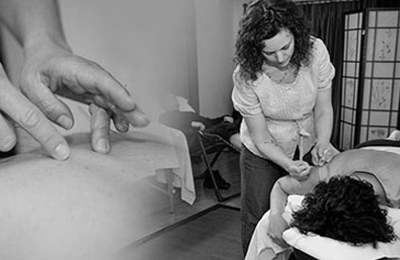Mental Health
Lyme Disease: Treatment is a Multidisciplinary Approach

As we head into Lyme Awareness month, let us highlight the multi-modal approach that it takes to treat the complex condition that is Lyme disease. Treatment for Lyme disease is not a “one size fits all” approach and looks different for every single patient. Several factors, including but not limited to, duration of illness, parts of the body involved, co-infections present, and underlying health status, play a significant role in clinical decision making to decide what treatment(s) are appropriate for any specific patient. Lyme disease can infect any tissue in the body, and therefore has the ability to affect several body systems at once. This often leads to a multitude of symptoms across body systems that seem to be unrelated, but are in fact, all connected. Since this can look different for every patient, having a practitioner in Integrative Medicine to take the time to listen to you and put all of the pieces together is essential to achieve proper evaluation and treatment.
Read MoreLyme Disease and Mental health

For those who are not diagnosed and treated in the early phases of Lyme disease, symptoms can progress to affect almost every part of the body. Some people present with chronic pain, some with autoimmune diseases, and some with predominantly neurological symptoms. Neurological Lyme often includes sudden changes in mood which can impact a person’s day to day life functions.
Read MoreShifting Your Resolutions

As the leaves begin to fall, the air begins to grasp tighter around our skin; we reminisce, reflect on our year, and for most of us, begin to feel regret and shame for not accomplishing those new year resolutions we thought of many months before. The end of the year can be met with stress, anxiety, and depression, and especially now, we may have more fear and uncertainty. We tend to put pressure on ourselves around this time of year, mainly because of what is portrayed in the media, what we consume daily, and the shock that is this year ending and another one upon us. Time seems to pass by faster when the years come to a close, we tend to think back on what we could and should have done, what we may have lost or gained, thus looping us back into the shame of not meeting unrealistic expectations.
Read MoreHealth and Gratitude

Being the first born child, I was an easy baby with minimal to no health issues. Little did my parents know that their next child would be quite the opposite picture of health. Following a challenging birth, it was a never ending cycle of visits to children's clinics, new specialists, new medications, surgeries, series of hospitalizations, with a couple of near death health emergencies sprinkled on top. It was easy to feel hopeless, sorrowful, and downright angry for everything that this innocent child had to experience. However, we soon realized that what was out of our control was simply out of our control. It would be essential to embrace what we could control - our mindset towards the situation.
Read MoreGratitude and Chronic Illness

Living with a chronic illness can offer a special set of skills, emotional awareness, and shift in the ways in which we associate with gratitude. When we think about gratitude, what comes to mind is often our external world, rather than what is experienced inward. With the grief that ensues in living with a chronic condition, our mind, body and soul begin to reconnect itself differently; what might have been no longer serves us now; we begin to adopt new practices of love, appreciation, and care. When it comes to treatment, chronic illness patients often experience a disconnect in what these mean versus what it may have meant prior to their diagnosis. Unfortunately, mainstream medicine offers only a narrow lens in healing, while most of us suffering with anything chronic (mental and physical) require an adaption of treatment and lifestyle embedded in our daily living....
Read More




















